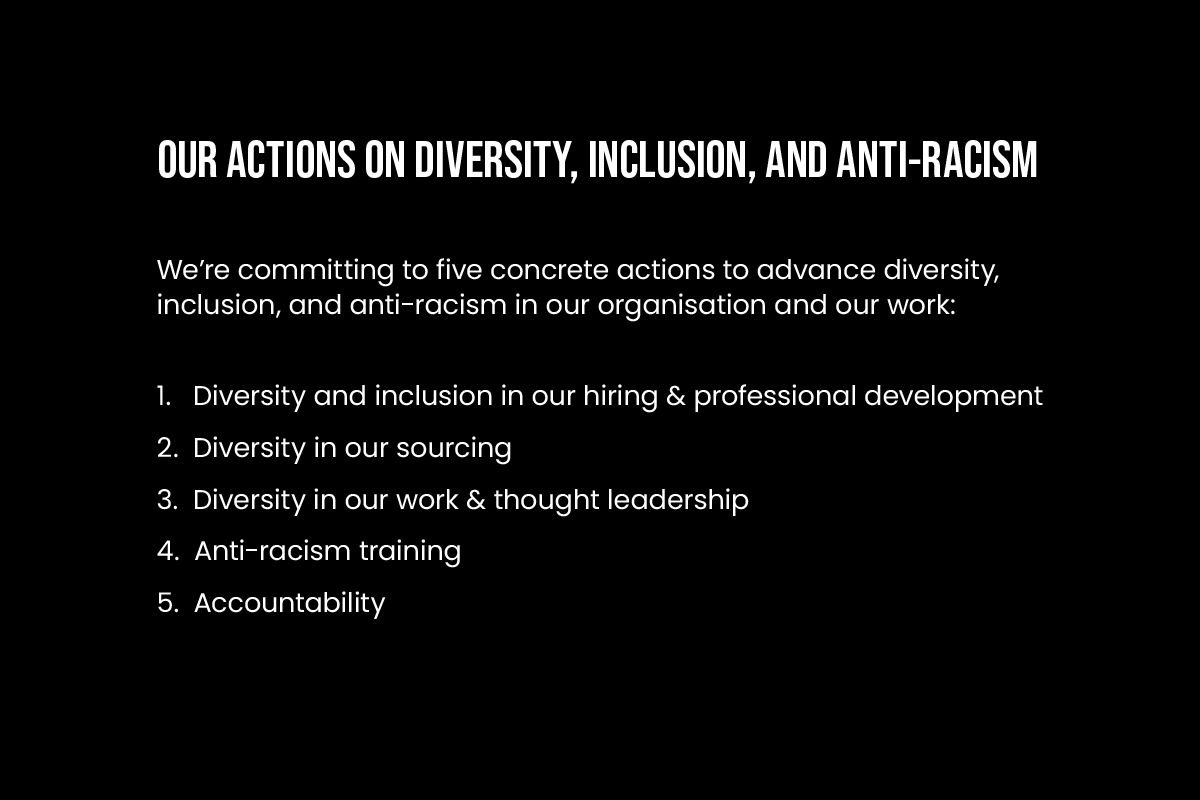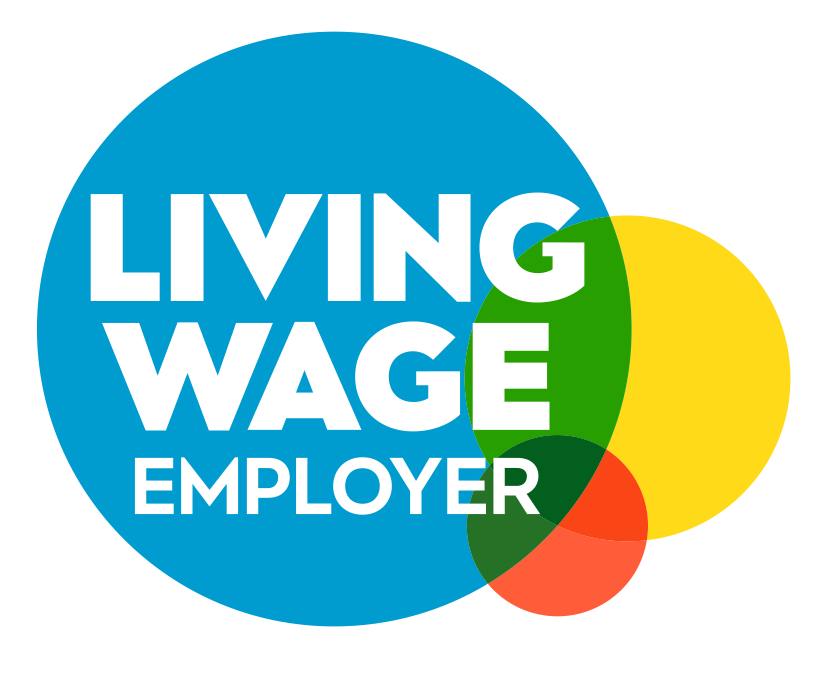Over the past several weeks, we have listened openly to conversations about the economic, social, and political systems that have continued to oppress Black communities around the world. We have also challenged ourselves to look inward and examine our own commitments to racial justice and inclusion. We have come together as a team to discuss our collective and individual responsibilities to advance racial justice and equality.
As both an organisation and as individuals, we want to strongly reaffirm: Black Lives Matter.
Atalanta was set up to empower the voices of the unheard, helping them reach political and public platforms to shape the world for the better. In our approach to gender equality, we have recognized the experiences of Black and minority women and sought to understand — and help break down — the unique barriers on their paths to leadership.
We have been proud to work with a diverse range of clients and partners, including inspiring and accomplished Black women leaders who are overcoming tremendous odds to make an impact in their countries and their communities.
Over the last three years since our founding, we have consciously made diversity a key consideration in our hiring as well as in the building of our vendor and freelance network. But we are not currently as diverse as we would like to be as an organisation. Today, we are making a new commitment to building diversity within our organisation and amplifying our impact on racial justice and inclusion in the countries and communities where we work.
We want to do more. Listen more, learn more, and act more.
Here are the five concrete actions we are taking:
1. Diversity & inclusion in our hiring and professional development
Beyond simply being the right thing to do, we strongly believe that advancing diversity and inclusion within our organisation will help us to improve the quality of our work, better serve our diverse clients, and strengthen our impact.
We are strengthening our processes for prioritising diversity in our recruitment and hiring. We commit to ensuring that our job listings are advertised on platforms that reach Black and minority candidates. This will include reaching out to Afro Caribbean Societies at universities across the UK for entry-level roles and building relationships with recruitment firms and platforms that specifically work with Black and minority candidates for roles at all levels—particularly those in senior leadership.
In order to understand how effective these efforts are—and to hold ourselves accountable—it is crucial that we have data on how diverse our applicant and interview pools are. We will begin tracking this and will prepare a report at the end of each hiring process to evaluate how many Black and minority applications we receive, how many of those applicants advance to the testing and interview stages, and how many are eventually offered positions within the organisation.
In our review of applications, we already account for the unequal opportunities that applicants may have had to develop experience and skills. This is particularly true in our recruitment for entry-level roles, where we do not require applicants to submit CVs or grades. Instead, at the first stage, we require only a letter explaining why the applicant feels they are a fit for the role. And for shortlisted applicants, we carry out a test that enables us to assess raw skills that can be developed and honed. We will review this process, considering the intersection of both race and class, and working to ensure that it does not unintentionally disadvantage candidates based on their identity or background.
Further, since our founding we have always paid our interns the London living wage. We strongly disagree with unpaid internships and believe that they perpetuate inequality. We commit to continuing to pay the London living wage for all interns.
We will improve our training programmes for interns and entry-level hires, ensuring that we are accounting for employees’ different backgrounds and opportunities. In addition to developing the basic skills required to succeed in the role, we will look for opportunities to help our interns and employees develop specialised skills that will set them up to succeed later in their careers.
2. Diversity in our sourcing
We will launch a proactive effort to identify Black- and minority-owned suppliers, including website developers, IT specialists, designers, video producers, and writers and ask them to become part of our supplier network. We will also explore platforms and networks for Black-owned businesses and will make them part of our sourcing process.
While we recognise that it is our responsibility to proactively improve the diversity of our supplier network, we will also make it easier for Black and minority suppliers to get in touch with us. We will launch a supplier application form on our website, which will specifically ask whether suppliers are Black- or minority-owned. (As well as whether they are woman-owned.)
We commit to dedicating at least 15% of our spending on outsourced services to Black- and minority-owned firms. This ensures that our sourcing reflects the overall BAME population in the United Kingdom, and also aligns our targets with the 15% Pledge, which originated in the United States.
3. Diversity in our work & thought leadership
Pro-bono communications and campaign support for individuals and organisations with limited resources has always been part of our model. We will explore partnerships with organisations in our network that are already doing fantastic work in racial justice, seeking to amplify and contribute to their efforts.
We feel that we can best contribute our skills to this work in three areas:
- Helping to develop skills for Black and minority youth seeking to enter the communications and campaigning fields.
- Providing communications and campaign support for organisations focused on racial justice.
- Providing support to aspiring Black and minority political candidates at both the national and local level who are seeking to position themselves for party selection or run a successful campaign once selected.
We will provide further details in the coming months as we finalise our plans.
We will use our platform and thought leadership to proactively combat racism and advance diversity and inclusion. We will explore opportunities for co-authored reports that specifically address the barriers that Black and minority women candidates and leaders face in advancing in their fields.
As we continue to build out our website, we will also look for opportunities to use it as a platform to showcase Black and minority voices. We will seek out more diverse writers to commission to contribute content.
Finally, we will work to ensure diversity in visual representation, both in the content we produce for Atalanta and for our clients.
4. Anti-racism training
We understand that acknowledging and addressing unconscious bias is not enough, we must also ensure that everyone on our team is proactively working to combat racism.
We will carry out anti-racism training for our staff, and we will make this part of our onboarding process moving forward.
5. Accountability
Finally, we will hold ourselves accountable. We will review our commitments on a 6-month basis, ensuring that we are continuing our momentum and delivering impact on the areas outlined above.
We will also revise our annual review process for employees, adding a section to the review that assesses how each employee has contributed to diversity and inclusion over the course of the year. Through the pro-bono activities outlined above, we will ensure that every employee has the opportunity to make a meaningful contribution, adjusting workloads accordingly to make it clear that this should be a priority for all staff.
Black Lives Matter. And we will continue to challenge ourselves every day to ensure that the world acknowledges this truth and tears down the barriers to achieving justice and equity for all.




